
Ellas Otha Bates, known professionally as Bo Diddley, was an American guitarist and singer who played a key role in the transition from the blues to rock and roll. He influenced many artists, including Buddy Holly, the Beatles, the Rolling Stones, the Animals, George Thorogood, Syd Barrett, and the Clash.

Eric Robin Bell is a Northern Irish rock and blues musician, best known as a founding member and the original guitarist of the rock group Thin Lizzy, of which he was a member from 1969 to 1973. After his time in Thin Lizzy, he briefly fronted his own group before joining the Noel Redding Band in the mid-1970s. He has since released several solo albums and performs regularly with a blues-based trio, the Eric Bell Band.
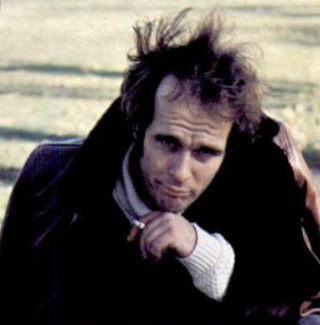
James Timothy Hardin was an American folk music and blues singer-songwriter and guitarist. In addition to his own success, his songs "If I Were a Carpenter", "Reason to Believe", "Misty Roses" and "The Lady Came from Baltimore" were hits for other artists.

John Voorhis "Tim" Bogert III was an American musician. As a bass guitarist and vocalist he was best known for his powerful vocal ability and his fast runs, fluid agility and ground-breaking sound on his Fender Precision Bass. He was one of the pioneers of using distortion with his bass to help it cut through the mix with the low-powered amps of his time which also imparted a very sharp-edged sound to it. He was a frequent collaborator with drummer Carmine Appice; the duo performed in such bands as Vanilla Fudge, Cactus and the power trio Beck, Bogert & Appice.

Tim Hardin 1 is the debut album by folk artist Tim Hardin, released in 1966 on Verve Records.

Karen J. Dalton was an American country blues singer, guitarist, and banjo player. She was associated with the early 1960s Greenwich Village folk music scene, particularly with Fred Neil, the Holy Modal Rounders, and Bob Dylan. Although she did not enjoy much commercial success during her lifetime, her music has gained significant recognition since her death. Artists like Nick Cave, Devendra Banhart, and Joanna Newsom have noted her as an influence.
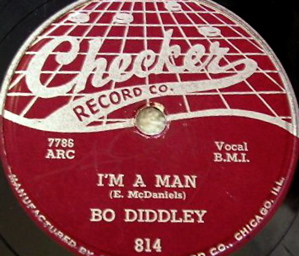
"I'm a Man" is a rhythm and blues song written and recorded by Bo Diddley in 1955. Inspired by an earlier blues song, it was one of his first hits. "I'm a Man" has been recorded by a variety of artists, including the Yardbirds, who adapted it in an upbeat rock style.
"Don’t Make Promises" was the first track on Tim Hardin's debut album Tim Hardin 1, released in 1966. The song, along with "Reason to Believe," was one of the two major songwriting hits from the album, with more than a dozen cover versions having been recorded following its release. British radio presenter and writer Charlie Gillett noted the song's ability to achieve "the elusive balance between personal miseries and universal sufferings," while author Mark Brend praised the song's "fragile pop sensibilities" and how it contrasted with the "swaggering" R&B of album track "Ain't Gonna Do Without."

"Who Do You Love?" is a song written by American rock and roll pioneer Bo Diddley. Recorded in 1956, it is one of his most popular and enduring works. The song represents one of Bo Diddley's strongest lyrical efforts and uses a combination of hoodoo-type imagery and boasting. It is an upbeat rocker, but the original did not use the signature Bo Diddley beat rhythm.

Alex Harvey and His Soul Band is the debut album by Alex Harvey accompanied by his Soul Band. It was originally released in 1964 on vinyl, and was re-released on vinyl in Germany in 1985 or 1986. The 1999 release is a compilation of 20 unreleased songs of the Soul Band, including two songs recorded before the debut album. The album is available on CD.
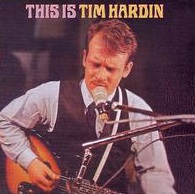
This Is Tim Hardin is an album by folk and blues artist Tim Hardin released in 1967 in mono and stereo by Atco Records, a subsidiary of Atlantic Records which released it on cd in 1998.

If I Were a Carpenter is an album by American singer Bobby Darin, released in 1966. It was a significant change in direction for Darin considering his previous album was a collection of show tunes.

South Coast is an album by American folk musician Ramblin' Jack Elliott, released in 1995. It was his first new studio release in over 20 years.

The Bocephus Box is a box set of songs recorded by country music artist Hank Williams, Jr. Produced by Jimmy Guterman, it was originally released in 1992 by Capricorn Records, and re-released in 2000 by Curb Records, with a slightly different track list.
Michael Pickett is a multiple award-winning Canadian blues and roots singer, guitarist and harmonica player.
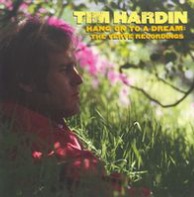
Hang On to a Dream: The Verve Recordings is a compilation album by folk artist Tim Hardin, released in 1994. It includes all Hardin's studio recordings for the Verve label as well as alternate takes, unreleased tracks, and demos.

His Best is a greatest hits album by Chicago blues harmonica player Little Walter, released on June 17, 1997 by MCA and Chess Records as a part of The Chess 50th Anniversary Collection. The album is seen as the CD successor to the 1958 The Best of Little Walter and features ten of the songs from that album.

"You Don't Love Me" is a rhythm and blues-influenced blues song recorded by American musician Willie Cobbs in 1960. Adapted from Bo Diddley's 1955 song "She's Fine She's Mine", it is Cobbs' best-known song and features a guitar figure and melody that has appealed to musicians in several genres.
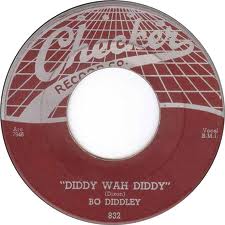
"Diddy Wah Diddy" is a song written by Willie Dixon and Ellas McDaniel, known as Bo Diddley, and recorded by the latter in 1956. The song shares only its title with Blind Blake's song "Diddie Wah Diddie" recorded in 1929. Over the years, the Bo Diddley song has been covered by many bands and artists, including the Astronauts, Captain Beefheart and his Magic Band, the Remains, the Twilights, Taj Mahal, the Sonics, the Fabulous Thunderbirds, Ty Segall Band, and the Blues Band among others.

Inside Out is a 1967 album by Bobby Darin. This album found Darin continuing to explore the folk genre, as he had on his previous release, If I Were a Carpenter. Like its predecessor, Inside Out contains songs by Tim Hardin and John Sebastian, as well as Randy Newman and The Rolling Stones.


















